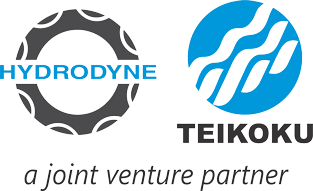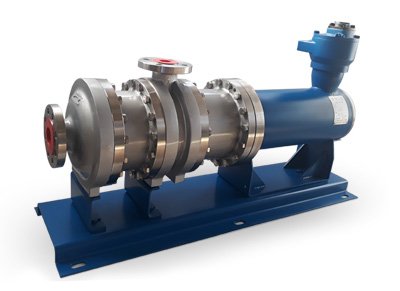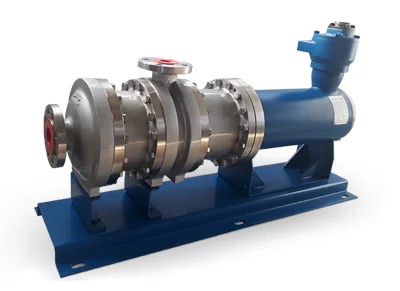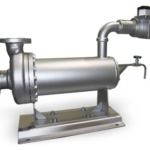
Understanding The Role Of Chemical Pumps In Safe Industrial Operations
September 25, 2024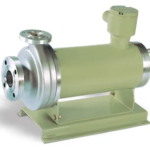
Best Canned Motor Pumps in India: Quality, Reliability, and Affordability
October 14, 2024The industrial application of equipment does play a significant role in efficiency, productivity, and success. When it comes to many types of pumps, the multistage pump is essential for the industrial sector as these pumps can be designed for multiple applications. Some even cater to specific instances like water supply, irrigation, or chemical processing. This blog post presents the top five advantages of using Multistage Pumps in industrial applications.
1. Output at High Pressure
One of the primary advantages of multistage pumps is that they can be used for high pressures. Single-stage pumps can only provide a limited amount of pressure, whereas a multistage pump has many impellers and stages that allow these pumps to gain much higher pressures as output. Therefore, they are very fit for applications where the fluid should be transported over a long distance or at great heights, such as in water treatment plants or fire-fighting systems.
In processes that require high pressure, cost savings are considerably high using the operating efficiency of multi-stage pumps as they deliver water or chemicals at the pressure required. Thus, the need for additional pressure boosters or pumps minimizes, and the system design is generally optimized.
2. Energy Efficiency
Energy efficiency forms an essential aspect of most industries. Multistage Pumps are known to produce efficiency and, thus, reduce energy consumption in the long term. The way these pumps distribute the load to several impellers ensures that less energy will be used to move a fluid.
Moreover, with the new materials and technologies through which most modern multistage pumps are made, more energy is conserved as it reduces device waste. For instance, high-efficiency impellers tend to minimise the quantity of energy dissipated in pumping and save a homeowner or office money they used to spend on electricity. In this climate, in which energy prices continually go up, energy-efficient devices such as multistage pumps can contribute to a massive chunk of the savings of any company.
3. Versatility
Another essential advantage of Multistage Pumps is versatility. These pumps can handle a wide variety of fluids, whether it be water, oils or chemicals. It is, therefore, versatile for different industrial applications. Adaptation to fluid allows business organizations to work with one kind of pump for other purposes, thereby decreasing the need to maintain a stock of diversified pumps within the company.
Conversely, multistage pumps can be created in virtually any layout to suit many different applications. For instance, they may be provided in vertical or horizontal layout so that the industry can choose the most suitable operation space and requirements. This flexibility makes it an invaluable industrial asset.
4. Extended Lifespan and Reliability
Reliability and durability are necessary for industrial equipment investments, and multistage pumps are designed for long-lasting durability. Made of quality materials, these pumps are durable in many models with stainless steel parts and resist corrosion and wear.
With such a design, multistage pumps can accept changes in flow and pressure without affecting their performance. Thus, multistage pumps become highly serviceable compared to other pumps that fail in specific environments. Lowered downtime and maintenance from the multistage pumps will add even more strength to the productivity of these continuous operation industries.
5. Reduced Maintenance Requirements
Also, multistage pumps usually require less maintenance than other kinds of pumps. Such advanced designs and materials minimize the everyday problems of cavitation, wear, and tear. For this reason, they don’t need to be serviced or replace parts as regularly as other pumps, helping businesses carry out core activities with minimal distractions by pump problems.
In addition, most Multistage Pumps have various features that facilitate easy and simple maintenance. For instance, some have inspection points and on-site repair. This makes it very convenient for the maintenance staff to do any checks and repairs without disassembling the whole unit. All this will save a lot of time and costs.
All in all, the advantages of multistage pumps are clear-cut when considering industrial applications. These pumps produce high output pressure and exhibit excellent energy efficiency. They are versatile and can be more durable with lower maintenance requirements. Such considerations make them a number one choice for most industries. Investing in a multistage pump can yield considerable operational benefits in water treatment, chemical processing, or any other field requiring reliable fluid transfer.
For businesses looking to optimize their processes and reduce their costs, investigating multistage pumps is a smart one, as their advantages are unique. Leverage those qualities, and businesses will see improved productivity levels, better energy efficiency, and assurance of effective performance as needed in operations. If you’re considering changing to pumping systems to enhance your industrial success, look into the value that multistage pumps might add to your organization.
